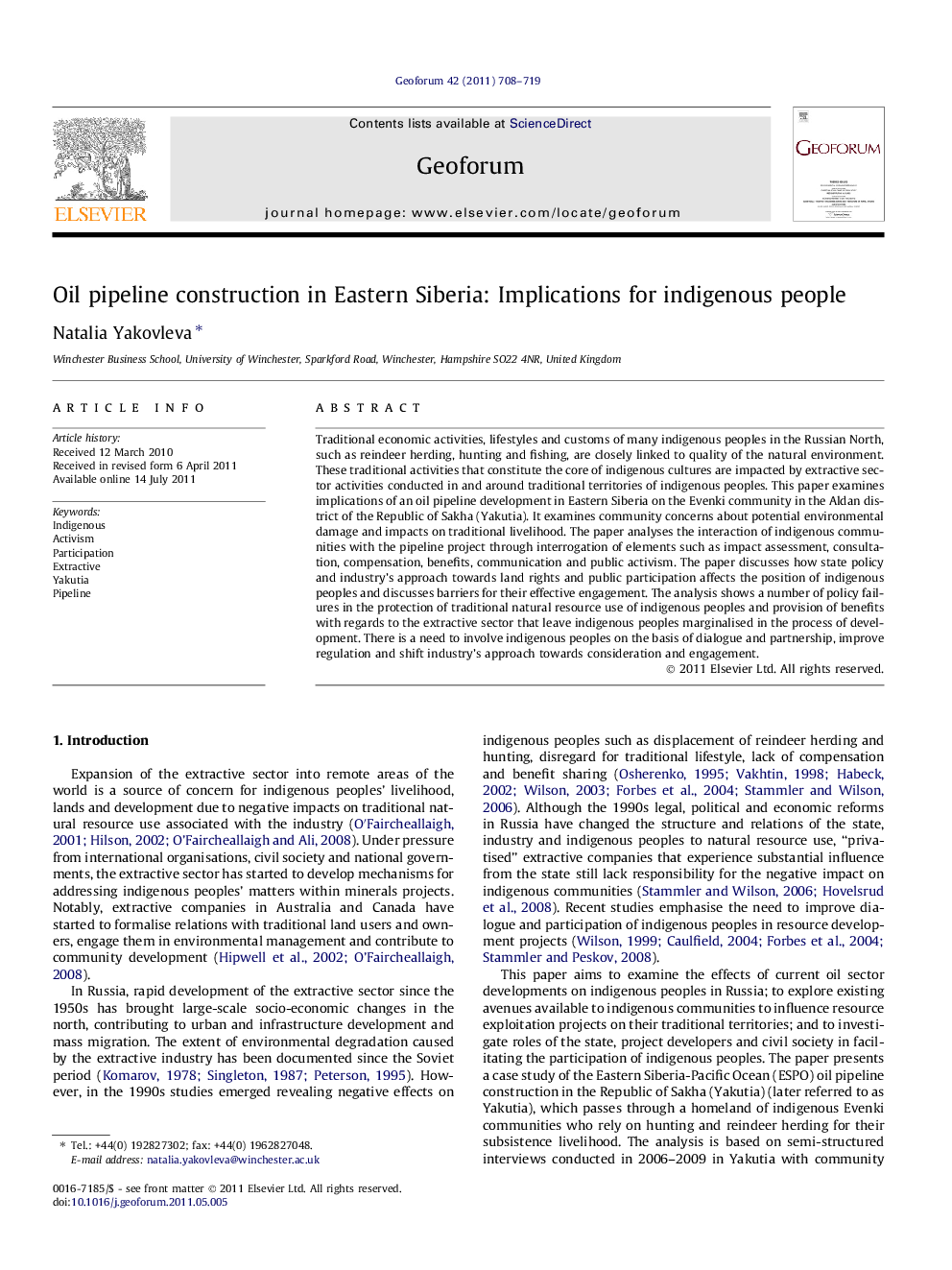| کد مقاله | کد نشریه | سال انتشار | مقاله انگلیسی | نسخه تمام متن |
|---|---|---|---|---|
| 5074355 | 1373695 | 2011 | 12 صفحه PDF | دانلود رایگان |

Traditional economic activities, lifestyles and customs of many indigenous peoples in the Russian North, such as reindeer herding, hunting and fishing, are closely linked to quality of the natural environment. These traditional activities that constitute the core of indigenous cultures are impacted by extractive sector activities conducted in and around traditional territories of indigenous peoples. This paper examines implications of an oil pipeline development in Eastern Siberia on the Evenki community in the Aldan district of the Republic of Sakha (Yakutia). It examines community concerns about potential environmental damage and impacts on traditional livelihood. The paper analyses the interaction of indigenous communities with the pipeline project through interrogation of elements such as impact assessment, consultation, compensation, benefits, communication and public activism. The paper discusses how state policy and industry's approach towards land rights and public participation affects the position of indigenous peoples and discusses barriers for their effective engagement. The analysis shows a number of policy failures in the protection of traditional natural resource use of indigenous peoples and provision of benefits with regards to the extractive sector that leave indigenous peoples marginalised in the process of development. There is a need to involve indigenous peoples on the basis of dialogue and partnership, improve regulation and shift industry's approach towards consideration and engagement.
⺠Current regulations in Russia do not provide appropriate means for indigenous peoples to exercise their rights for FPIC. ⺠De-collectivisation, land property reform and municipal reform leave many legal, land and economic relations of indigenous peoples unresolved. ⺠Russian industry lacks social responsibility for negative impact and does not follow the international guidelines on indigenous peoples. ⺠Financial institutions and the government do not put pressure on the Russian industry to improve indigenous peoples' relations. ⺠The state often suppresses activities of NGOs that voice concerns about negative industrial impacts on the environment and indigenous people.
Journal: Geoforum - Volume 42, Issue 6, November 2011, Pages 708-719